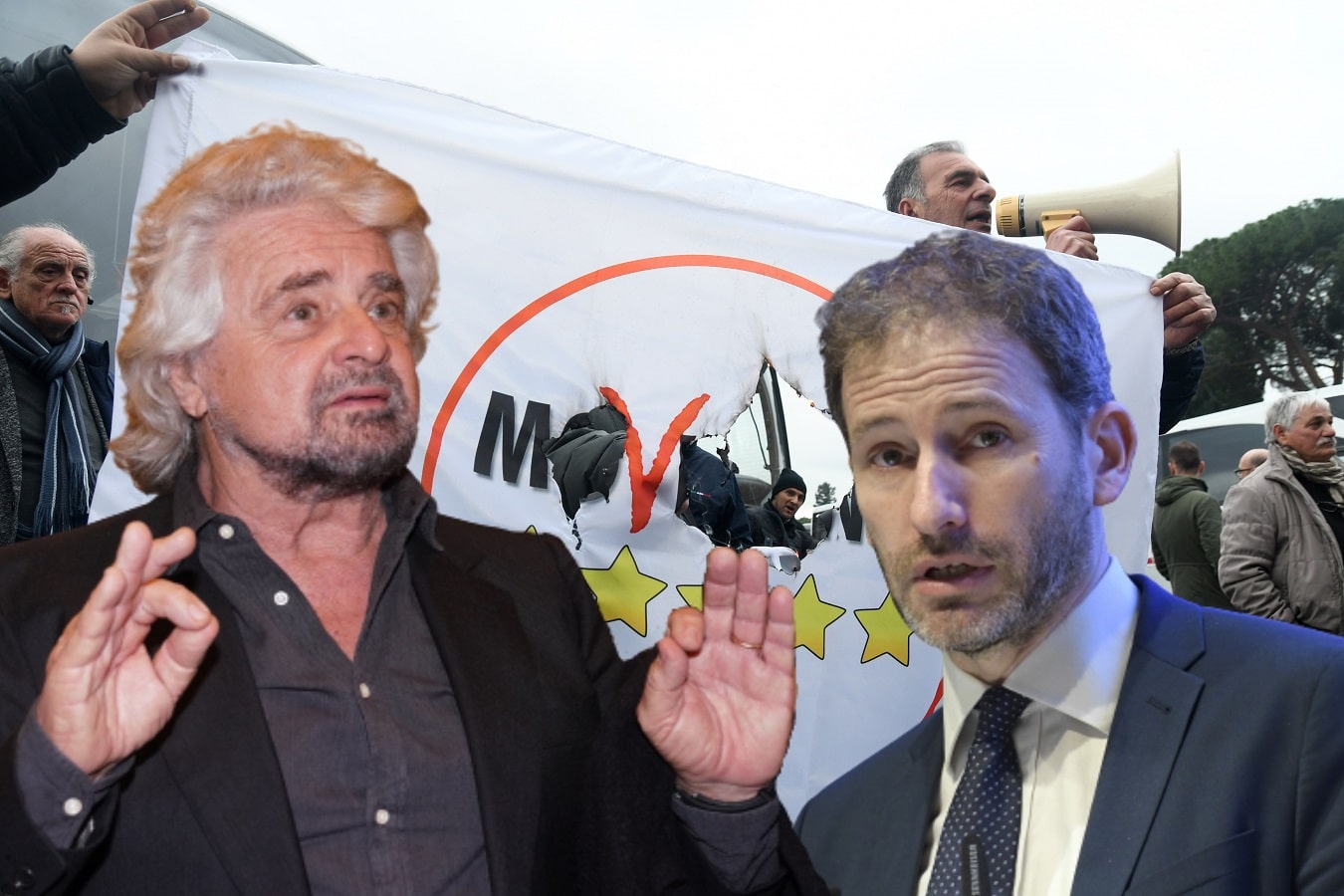The Five Star Movement-Democratic Party duo, who held the reins of the previous government, are struggling to adjust to the new executive. The first party is splitting in two, the second’s leader has just resigned. What does it mean for the Italian political landscape?
Mario Draghi’s meteoric landing at the summit of Italian politics has shaken it to its very core. Mere weeks after his swearing-in ceremony, some Italian parties are unrecognizable – and the two main partners of the former coalition government have been impacted the most.
The first clear evidence of the Draghi effect was Matteo Salvini’s EU-turn, as his historically nationalist, Eurosceptic party quickly changed its core tenets to fit in a decidedly pro-EU government. These days, however, the two former governing partners – the Five Star Movement (5SM) and the Democratic Party – are undergoing radical transformations, too.
For starters, the 5SM is about to split. Its most orthodox members, who hold their original anti-élite, anti-establishment and anti-European roots dear, refused to vote for their party to enter Mr Draghi’s government, and thus earned an expulsion. Tallying them up with previous 5SM drop-outs, the party (which was the single biggest force in Parliament) has now lost one-third of its initial MPs.
Those who remained had to accept a radical repositioning of the 5SM into a “moderate and liberal force”, in the words of former party leader Luigi Di Maio – quite a leap for those who once wanted to “open Parliament like a tuna can.” Their rebranding – sponsored by the party founder, Beppe Grillo – features an environmentalist agenda and a newly registered website with a new name, “Movement 2050”, a likely reference to the EU’s aim of reaching net-zero emissions by 2050.
The 5SM rebels, however, are having none of that. One of the core tenets of the original party is a “direct democracy”, privately owned digital platform, named Rousseau after the French philosopher. Davide Casaleggio, the son of Rousseau’s late inventor and its owner, seems set to reuniting die-hard 5SM rebels into a new party, “ControVento” (“against the wind”).
Mr Casaleggio announced on the 5SM’s official blog that the manifesto for ControVento will be announced on the 10th of March. Meanwhile, what remains of the pro-government 5SM will most likely be led by recently fallen prime minister Giuseppe Conte, who has reportedly agreed to replace Vito Crimi, the eternal “temporary” leader.
Enter the Democratic Party, the second-biggest force in the former government after the 5SM. On Tuesday, its leader Nicola Zingaretti announced his resignation via a Facebook post. He lamented the short-sightedness, violent power hunger and “daily guerrilla” that pervaded the party. He wrote that he would take a step back in hopes that “the DP may revert to talking about the country’s problems and strive to solve them.”
Mr Zingaretti’s resignation, which is not yet definitive but certainly feels like it is, will force the Dems to rethink a series of conceits – starting with their thoughts about a “structural alliance” with the 5SM (or its future moderate fringe). Once sworn enemies, the two parties had found their common denominator in Mr Conte, so a future collaboration is not unthinkable.
However, the Dem leader has come under heavy fire from some of his colleagues who thought that their time with the 5SM had deprived the party of its original identity. There are those who wish to put some distance between the moderate, centre-left DP and the rowdy former populists of the 5SM.
Other than that, Mr Zingaretti has been harshly criticised for not calling an assembly to discuss the party line, and for not having presented any female candidate as minister in the new government, a heavy stain for Italy’s main progressive force. Anyway, these ministers were picked to attempt to satisfy the party’s countless internal currents – meaning that not only divisions within the DP exist, but they might widen as they fight for their next leader.
The date for the next DP assembly is not set, but many among its members are calling for it. Whichever way it comes, the party’s next leader will be instrumental to understand what direction the Italian left will take.








